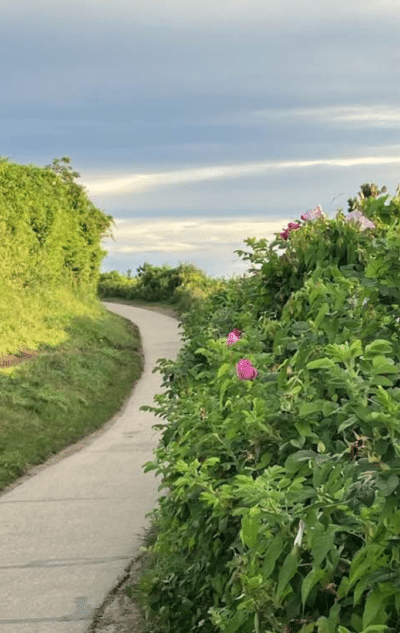We all have an inner voice that constantly chatters in our minds, evaluating our actions, appearances, decisions — sometimes making us feel unlovable or not good enough. My young Inner Critic was linked to feelings of shame, and as a teen this part named me Shamey-Amy! For most of us, the IC manifests as a harsh and judgmental force, undermining our self-esteem and hindering personal growth. Mark Twain said, “If we talked to our children the way we talk to ourselves, we’d be arrested for child abuse.”
 As that shamed-based being, I did what I knew to do — I smiled nervously, and tried to keep my cool and radiate confidence, and I know you know: inwardly there she was, behind the scenes critiquing my every move! Did I cringe? Yes, frequently.
As that shamed-based being, I did what I knew to do — I smiled nervously, and tried to keep my cool and radiate confidence, and I know you know: inwardly there she was, behind the scenes critiquing my every move! Did I cringe? Yes, frequently.
From “Idiot!” to laughter:
Yoga, meditation and good therapy helped me befriend my Inner Critic. I no longer feel that visceral whoosh of shame when I make a mistake. In fact, lately, a spontaneous kind of bubbling up laughter arises about something that my Inner Critic might have toned “Idiot!” When I tried a new approach, I experienced a wonderful shift: instead of battling my Inner Critic or believing her, I got curious. What if we embrace a curious approach towards the Inner Critic?
Getting curious about our IC can open a door to self-discovery and growth. By embracing curiosity, we can recognize patterns, trace origins, and understand its intentions. Through self-compassion we can transform the Inner Critic from a harsh adversary into a supportive companion. We all need a good editor, or at least, as a writer, I do, and that’s the new role my Inner Critic has taken on so we’re both a lot happier! Maybe your IC would rather find a new job as your coach or your cheerleader.
Befriending your Inner Critic:
You can discover its origins, understand its motives, and transform it into a supportive ally on your journey of self-discovery.
The first step in getting curious about our Inner Critic is to recognize the patterns of negative self-talk. If you can tolerate what arises as you inquire, take a moment to observe the thoughts and beliefs that surface during challenging situations or moments of self-doubt. Are there common themes? Identifying these patterns can help us understand the triggers that activate this part of us. This can be hard to do alone, but there is a way that might help you explore your Critic.
Your Inner Critic’s “why”:
Our IC often develops as a protective mechanism to shield us from potential harm or disappointment, and although it may appear harsh, its intentions may be rooted in a desire to keep us safe or motivated. By understanding its underlying objectives, we can reframe our relationship with the Inner Critic from one of resistance to one of acceptance. Self-compassion is a key element in transforming the Inner Critic. As we explore its origins and intentions, we can begin to offer ourselves the same kindness and understanding we would extend to a dear friend. When the Inner Critic arises, we can respond with compassion, reminding ourselves that it’s okay to make mistakes and that we are deserving of love and acceptance.
Questions to ask your Inner Critic:
I sometimes invite my students to interview their Inner Critic from a place of investigation. This can be done anytime, but it’s especially effective after yoga or meditation, when we’re already feeling kinder towards ourselves. You might try this and ask things like, How old are you? When did you arrive?
You can imagine what it looks like and even draw your Inner Critic. If the Critic criticizes your drawing, ask it if it might like to take a walk. What is its goal in speaking to you harshly? What do you need to say to it? Might it like another job? What does it sound like? Try writing the questions with your dominant hand, and then let the Critic respond, writing with your nondominant hand.
Did you discover that there were specific experiences or relationships in the past that contributed to these belief? Perhaps a critical parent or a past failure that left a deep emotional impact. By delving into the past with compassion, we can gain insights into how our IC evolved in the first place.
Smile at yourself now, and pause.
Remember, the Inner Critic doesn’t define us- it is only a part of us. As we embrace curiosity and cultivate self-compassion, we build a stronger sense of self-awareness and resilience, empowering us to navigate life’s challenges with greater grace and acceptance. So, let’s embark on this journey of curiosity and self-discovery, unlocking the potential for personal growth and self-love.
Let me know what you discover, I am eager to know how this lands, and how this helps you.
Want to learn more about Yoga For Your Mood? Click here for the next step. Relief is available and you can stay steady through whatever comes your way.
More on






Hi Amy! Reading this post, I’m reminded of a book I use with clients in my psychotherapy practice. (Of course, I use you as a resource, as well)! The book is “Taming Your Gremlin,” by Rick Carlson. He’s a strong advocate, as you are, for awareness, for “simply noticing,” the negative messages as being key to managing them, or “taming” them as Rick would say. You both have very similar and complementary approaches, and gentle, user-friendly ones, as well.
Thanks for this, Judy- noticing makes a huge difference! @
Thank you Amy! As I grow older I find it easier to laugh at my imperfections. I have benefitted greatly from your teachings.
Namaste
Hi Debbie- it’s freeing, isn’t it? Glad to hear, thank you. :)